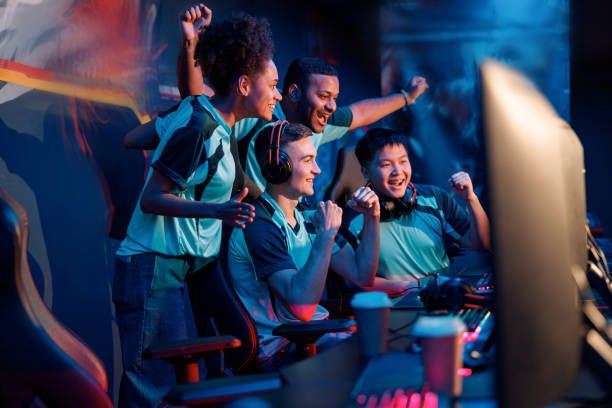The world of esports has skyrocketed in popularity, transforming gaming from a pastime into a legitimate professional pursuit. For those looking to excel in this competitive field, balancing gaming prowess with professionalism is crucial. Success in esports requires more than just skill in the game; it demands effective time management, strong communication skills, and a commitment to a healthy lifestyle.
Here’s how you can thrive in the esports world by striking the right balance.
Time Management: The Key to Consistency
One of the most important skills in the esports industry is time management. With training, competitions, and potential sponsorship obligations, days can become hectic. Developing a structured schedule that allocates time for practice, tournaments, and personal downtime is essential. Using digital tools like calendars and task management apps can help keep track of commitments and ensure that nothing falls through the cracks.
A disciplined approach to time not only aids in maintaining consistency but also prevents burnout, a common risk in high-intensity gaming environments. Ensuring that there is time away from the screen is vital for mental well-being and long-term success.
Communication Skills: Building a Winning Team
Esports is often a team endeavor. Whether you’re playing in a multiplayer online battle arena or a first-person shooter, clear and effective communication with your teammates can make or break your strategy. This involves not just speaking clearly but also listening actively and adapting to your team’s needs.
Good communication helps build trust among team members, leading to better collaboration and performance. It’s important to practice assertive communication, where you express your ideas confidently and respectfully. This skill is not only beneficial during gameplay but also in interactions with sponsors, coaches, and the wider esports community.
Maintaining a Healthy Lifestyle: The Foundation of Success
Physical and mental health are foundations for any professional athlete, and esports is no different. Despite the sedentary nature of gaming, staying physically active is essential. Regular exercise can improve concentration, reduce stress, and enhance overall performance in gaming.
Additionally, a balanced diet supports cognitive function and energy levels. Hydration and proper nutrition fuel long gaming sessions and help maintain focus. Mental health should not be neglected; regular breaks, mindfulness practices, and seeking professional help when needed can prevent stress and anxiety from impacting performance.
Investing in the Right Equipment: An Edge in Competition
In the esports world, having the right equipment can provide a significant advantage. While skill and strategy are paramount, using reliable hardware ensures that players can perform at their best. A prebuilt gaming PC, for example, can offer the high-performance needed for competitive play without the hassle of assembling parts. This allows players to focus more on honing their skills and less on technical issues.
Balancing Personal and Professional Identity
In esports, your personal brand is as important as your in-game skills. Building a professional identity involves showcasing your personality, skillset, and values to the esports community. It’s important to maintain a level of professionalism both online and offline, as your interactions can affect your reputation and opportunities in the industry.
Engaging with your audience through streaming platforms, social media, and community events can bolster your presence and open doors to new opportunities. However, it’s crucial to balance this with privacy and personal time, ensuring that your online persona doesn’t overshadow your personal life.
Continuous Learning and Adaptation
The esports industry is dynamic, with games evolving and new ones emerging regularly. Staying updated with the latest trends and developments is vital. This includes learning new strategies, understanding game updates, and adapting to new competition formats.
Being open to feedback and willing to learn from both victories and defeats can lead to continuous improvement. Networking with other professionals in the field can provide insights and enhance growth.
In conclusion, thriving in the esports world requires more than just gaming skills. It involves balancing professionalism with personal growth, maintaining a healthy lifestyle, and continuously adapting to industry changes. By mastering these aspects, aspiring esports professionals can achieve sustained success and fulfillment in this exhilarating field.

